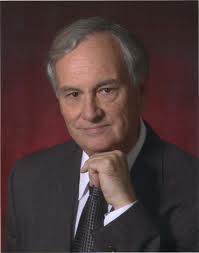Seminars and Panels
ORI Cases and How to Protect Yourself from Research Misconduct in Your Laboratory
Dr. Alan Price
|
Nov 7, 2011 |

In my career, from laboratory scientist to assistant dean to assistant vice president for research at a major university, through federal research administration into 17 years at the Office of Research Integrity (ORI), I learned many lessons from handling thousands of allegations and hundreds of investigations into scientific/research misconduct. In some of the ORI cases, very distinguished and famous scientists (Nobel laureates and National Academy of Science members) were told by scientists and reviewers outside their universities that their publications and grant applications contained fraudulent images and numerical data, much to their embarrassment. I will tell you several of these unfortunate stories, and I will make suggestions as to how you might best detect early "or prevent" such falsification, fabrication, and plagiarism of the research in your laboratory. I will stress why Ethics in Science matters deeply for all of us.
About Dr. Alan Price
Dr. Price earned his B.S. in Chemistry from Florida State University in 1964, and his Ph.D. in Biochemistry from the University of Minnesota in 1968, after which he was a postdoctoral fellow in Biochemistry through 1969 at Michigan State University.
In 1970, Dr. Price joined the faculty of the University of Michigan Medical School, where he then taught undergraduate and graduate students and did biochemical research, becoming Associate Professor of Biological Chemistry with tenure. His research dealt with the enzymology of nucleotide and DNA synthesis in unusual bacterial viruses.
In 1978, Dr. Price added research administration to his duties, becoming Assistant Dean for Research in the Medical School. In 1981, he was appointed Assistant Vice President for Research for the University of Michigan.
In 1987, Dr. Price decided to gain experience in Federal research administration, moving to the National Institutes of Health (NIH) in Maryland. He was the Program Officer for genetics grants for the National Institute of Aging for one year. Then he became the AIDS Unit Assurance Coordinator in the Office for Protection from Research Risks, responsible for protection of human subjects in all Public Health Service (PHS) grants on AIDS research.
In 1990, Dr. Price became a Senior Scientist in the new Office of Scientific Integrity (OSI) at the NIH, which became the Office of Research Integrity (ORI) at the PHS level of the Department of Health and Human Services (HHS). He had responsibilities for supervising scientific and professional staff, conducting investigations, approving institutional investigative reports, and developing national policies for PHS grants as they relate to research integrity. He also has presented many seminars and conducted educational workshops on dealing with research misconduct and maintaining integrity in biomedical research. He was promoted in 1991 to OSI Assistant Director. When OSI became ORI in 1992, he served as Chief of the Investigations Branch. He was promoted in 1999 to Acting Director of the Division of Investigative Oversight, and in 2000 to Associate Director for Investigative Oversight, ORI.
Dr. Price served in the above roles as the chief biomedical research fraud investigator for the United States Government until April 2006. He then established in the Hill Country of Lago Vista, Texas, a consulting business, Price Research Integrity Consultant Experts (P.R.I.C.E.), where he continues to consult on research misconduct issues as a business, providing expert advice to counsels, individual complainants/whistleblowers and respondents who have been wrongly charged or wrongly convicted (and their attorneys), and institutional officials, including Research Integrity Officers (RIOs), on research misconduct cases.
Dr. Price’s institutional clients have included The United States Department of Justice, The Veterans Administration Medical Center in Eastern Colorado, Utah State University, The University of Texas at Austin, The University of Minnesota, The University of Delaware, St. Jude Children's Research Hospital, Stanford University, The Ohio State University, The Johns Hopkins University, and Drexel University.
His individual clients have included complainants or wrongly‐charged respondents (and/or their attorneys) from The University of North Carolina at Charlottesville, The University of Kentucky, The University of Connecticut Health Center, The University of California at Los Angeles, Mt. Sinai Medical Center, Mayo Clinic, Fred Hutchinson Cancer Research Center, Duke University Medical Center, and City of Hope Medical Center.
He has also presented invited seminars for faculty and research staff and talked in graduate student courses at The University of Texas Medical Branch at Galveston, The University of Texas at Austin, The University of Arkansas for Medical Sciences, Roswell Park Cancer Institute, Massachusetts Society for Medical Research, and the HHS Office of Research Integrity (ORI) Research Integrity Officer (RIO) Boot Camp.
- 2017 - 2018
- 2016 - 2017
- Behavioral Concepts and the Sciences of Human Behavior
H. Longino Apr 21, 2017 - Insane Asylums and Genetics: How Human Heredity Became a Data Science
T. Porter Feb 17, 2017 - The Nature of Pride: The Emotional Origins of Social Rank
J. Tracy Jan 23, 2017
- Behavioral Concepts and the Sciences of Human Behavior
- 2015 - 2016
-
Public Ethics, Politics and Sociobiology
M. P. Sheldon Mar 11, 2016 -
Classifying People by Color: How Racial Categories Change Over Time
A. A. Martinez Feb 29, 2016 -
The Origin of Social Impulse: E.O. Wilson's Recent and Controversial Rejection of Kin Selection in Historical Context
A. Gibson Dec 4, 2015
-
Public Ethics, Politics and Sociobiology
- 2014 - 2015
-
Special Event: Lone Star History of Science Meeting Writing the Origin with Burned Fingers: Darwin's Penance for the "Sin of Speculation"A. Sponsel Apr 3, 2015 - Welfare, Work, and Witness: Why Clinical Research Can Survive the Death of a Healthy Human Subject
L. Stark Apr 3, 2015 - The Distinctive Significance of Systemic Risk
A. James Mar 6, 2015 - The Devil's Heritage: Masuo Kodani, the "Nisei Problem," and Social Stratification at the Atomic Bomb Casualty Commission in Japan (1946-1954)
V.B. Smocovitis Jan 28, 2015 - Atypical Combinations and Scientific Impact
B. Uzzi Dec 8, 2014 - Psychology of Science and Technology
M. Gorman Nov 17, 2014 - How Economics Shapes Science
P. Stephan Sep 10, 2014
-
- 2013 - 2014
- The Decision to Put David Vetter in the Bubble
J. H. Jones Apr 16, 2014 - Ethical Paradoxes of
Control: Science, Engineering, and the Expansion of Moral ResponsibilityR. Hollander Mar 3, 2014 - 'Broken Symmetry': Humanism, Militarism, and the Dilemmas of Scientific Identity in Nuclear Age America.
J. Wang Feb 17, 2014 - Using Creative Non-Fiction in Teaching Research Ethics
C.M. Klugman Dec 2, 2013 - Does Neuroscience Undermine Responsibility?
W. Sinnott-Armstrong Nov 15, 2013 - Arming Mother Nature: The Birth of Catastrophic Environmentalism
J. Hamblin Oct 18, 2013
- The Decision to Put David Vetter in the Bubble
- 2012 - 2013
- Lead Wars: the Politics of Science and the Fate of America's Children
D. Rosner Mar 25, 2013 - Identifying potential pitfalls in the quantitative appraisal system for scientific careers
A.M. Petersen Dec 3, 2012 - Keeping Secrets: Scientists' strategic management of militarization, 1945-1980
S. Lindee Nov 12, 2012 - Evolutionary Theory as Methodological Anesthesia: Methodological and Philosophical Lessons from Evolutionary Psychology
R.N. Boyd Oct 19, 2012 - Panel on Peer-Review Issues
Oct 11, 2012
- Can technology enable cities to cope with the economic winter?
A. Hampapur Sep 21, 2012
- Lead Wars: the Politics of Science and the Fate of America's Children
- 2011 - 2012
- Engineering Success and Failure on 9/11
S.K.A. Pfatteicher Apr 27, 2012 - Regulating Ionizing Radiation: Flawed Standard, Flawed Ethics
K.S. Frechette Mar 5, 2012 - Do fish feel pain?
C. Allen Jan 25, 2012 - The Ethics of Relevancy
J. Levine Dec 13, 2011 - ORI Cases and How to Protect Yourself from Research Misconduct in Your Labratory
A.R. Price Nov 7, 2011
- Engineering Success and Failure on 9/11











